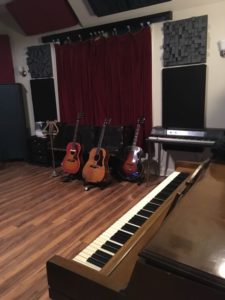 Are you working on a new album?
Are you working on a new album?
With all of the expenses associated with music production, singers often forget one of the most important budget items.
I would say a huge percentage of what I do is vocal production. Either months, weeks, days, or hours ahead of time, singers contact me to work on songs they’re about to record or perform, or both.
The idea is to go through songs and find ways they can be improved, either technically, artistically or both.
This can produce some very tangible and desirable improvements. We sometimes get in a groove that doesn’t want to budge, and sometime it takes an outside force to help us see the way over to something freer, more powerful, more communicative, or all of the above.
I don’t have an agenda for singers and want to help in any way I can, but I will say that the further ahead of time you can go through the process of examining, adjusting and rehearsing changes the better. In many cases I can demonstrate some desirable changes that aren’t necessarily going to be possible immediately. You’d like time to work through the techniques involved to reach these changes and be natural and genuine with them.
We want to be in a place where our intention guides our singing, but there are times we have to lock ourselves in a room with some new ideas and approaches and make them our own. There might be some struggle involved in that process and even though certain types of energetic struggles can be desirable in performing, fighting technique, is rarely attractive.
Waiting until the day of recording and having a producer start requesting difficult changes in your singing is more than likely only going to cause frustration, and we’ll hear that in the song.
So do yourself a favor, and budget some time and money ahead of time to do some Vocal Production for your project. Working with someone that has years of experience and some technical skills to teach you the steps to attain your goals, will prove invaluable not just for this project, but will leave you at a higher level of expertise for the next project and the performances of the material you’re about to record.
Here’s to thinking ahead.
Have fun,
Breck Alan